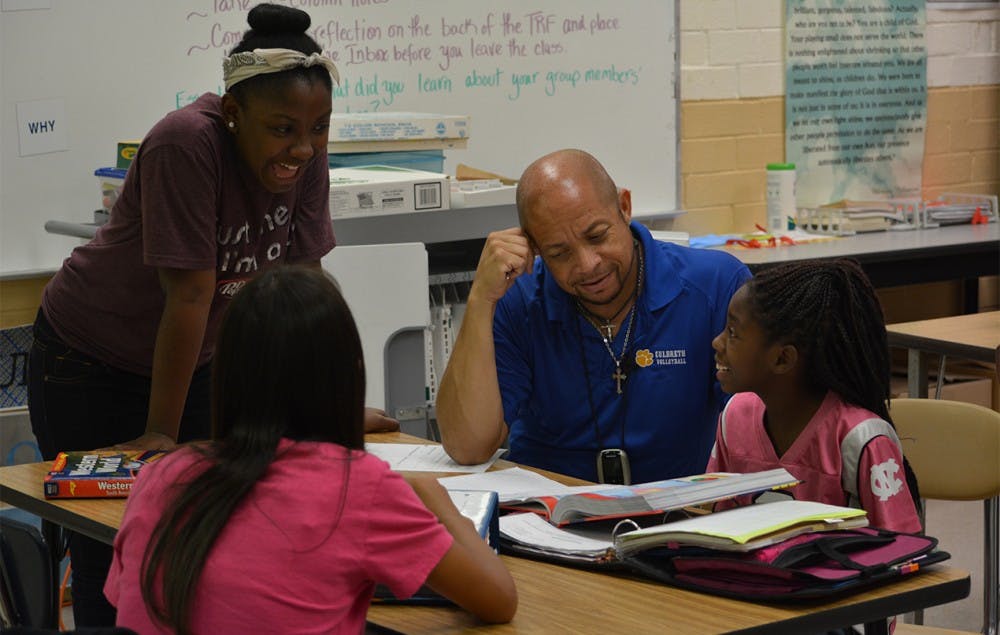“I suspect there are lots of businesspeople, as well as leaders, in a variety of disciplines that could be a great resource for charter schools and other schools,” Horn said.
He said less regulatory intrusion from the state allows experimentation with educational concepts and philosophies, and charter schools’ increased parental involvement is what holds them accountable.
He said charter schools are “test tubes” for education and could even benefit traditional public schools.
“I think that charter schools and public schools working together represents a huge opportunity to advance public education in North Carolina,” Horn said.
But Hennessee said the legislature seems intent on putting undue strain on public educators.
“The pushes that they’re doing right now are going to cause public schools to fail, so that they can shine out and push for charter schools,” he said.
Ariel Tichnor-Wagner, a doctoral student in UNC’s School of Education, said not requiring teachers to obtain certifications before putting them in the classroom shows a lack of understanding about the job.
She said the answer is not to eliminate formal teacher certification, but learn ways to make teacher training more effective for student outcomes.
Research suggests it takes teachers at least three years in the classroom to become more effective, she said.
“Charter schools, a lot of times, hire new teachers because new teachers are less expensive,” Wagner said.
Baker Mitchell, founder of The Roger Bacon Academy, a charter school near Wilmington, said important criteria for teachers are knowledge of instructional methods and content — not necessarily certification.
“The teacher is absolutely critical to the education of the kids in the classroom,” he said. “The attempt in early versions of the bill was for charter schools to be able to hire whomever they wished as long as they were highly qualified.”
To get the day's news and headlines in your inbox each morning, sign up for our email newsletters.
Mitchell said he has found that SAT scores in the state have improved significantly in direct proportion to the number of students enrolled in charter schools since 1998, and attributes this to market forces.
Horn said he thinks public schools will respond well to any challenge they might feel charter schools represent, and competition raises the bar.
“North Carolina is blessed to have a large number of really terrific teachers that work really hard and care very much about student outcomes,” he said.
Keese said she wants to give teaching in public schools a shot, and knows she has to get licensed to do so.
“I would love to do my part as a teacher in a classroom to take whoever comes in and make sure that their needs and their background are accounted for,” she said.
Hennessee said having a choice between public and charter schools is good, but the choice should be realistic. No one would choose a clinic that doesn’t require formal certification for its doctors, he said.
“We continue to work, we put our hearts into it, there are no excuses from our end and we strive for excellence daily,” he said.
state@dailytarheel.com



